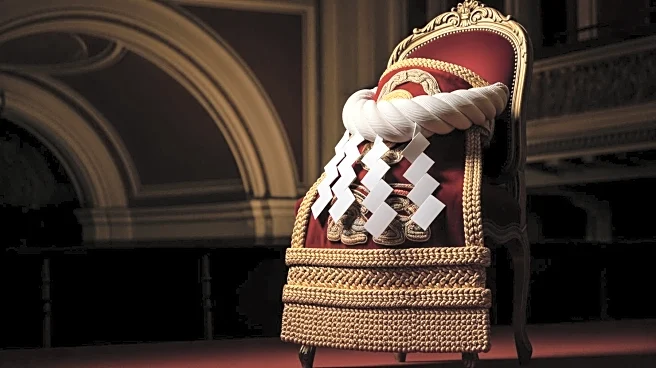What's Happening?
The Royal Albert Hall in London hosted the Grand Sumo Tournament, featuring 40 elite sumo wrestlers, including grand champion Onosato Daiki. This event marks only the second time a full professional sumo tournament
has been held outside Japan, with the first also occurring in London in 1991. The tournament showcased Japan's rich cultural history and traditions, with wrestlers participating in various bouts and ceremonies. The event attracted significant attention, with fans capturing memorable moments and engaging with the wrestlers.
Why It's Important?
The Grand Sumo Tournament in London highlights the global appeal and cultural significance of sumo wrestling, traditionally a Japanese sport. Hosting such an event outside Japan demonstrates the sport's international reach and the potential for cultural exchange. It provides an opportunity for audiences unfamiliar with sumo to experience its traditions and rituals, fostering greater understanding and appreciation of Japanese culture. The event also underscores the importance of cultural diplomacy and the role of sports in bridging cultural divides.
What's Next?
Following the success of the Grand Sumo Tournament in London, there may be increased interest in hosting similar events in other international locations. This could lead to further expansion of sumo wrestling's global presence and popularity. Organizers might consider additional promotional activities or collaborations to enhance the sport's visibility and attract new fans. The event's impact could also encourage other traditional sports to explore international venues, contributing to cultural exchange and diversity in the global sports landscape.
Beyond the Headlines
The Grand Sumo Tournament's presence in London may prompt discussions about the preservation and adaptation of traditional sports in modern contexts. It raises questions about how cultural heritage can be maintained while embracing globalization and cross-cultural interactions. The event also highlights the potential for sports to serve as a platform for cultural education and exchange, offering insights into how traditional practices can be shared and appreciated across different cultures.









